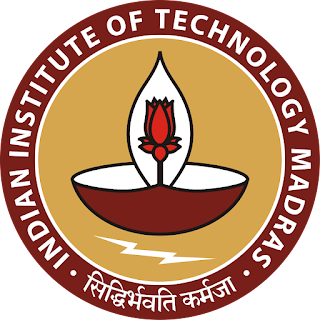IIT Madras, in partnership with Tel Aviv University in Israel, has created
an aerogel adsorbent designed for the elimination of trace contaminants from
wastewater.
The research team achieved this by enhancing a silica aerogel with graphene.
The resulting
"Graphene-doped modified silica aerogels (GO-SA)"
demonstrated exceptional water purification capabilities, effectively
attracting and eliminating contaminants. The outstanding performance can be
attributed to graphene's distinct molecular structure, which significantly
increases the surface area of the aerogel. In their experiments, conducted
under conditions resembling real-life scenarios, the material successfully
removed over 85% of pollutants in controlled settings and more than 76% in
continuous flow conditions.
The research was spearheaded by
Professor Shanti Swarup Bhatnagar, a recipient of a
prestigious prize, and Professor Rajnish Kumar,
both from IIT Madras. The team also comprised
Mr. Subhash Kumar Sharma and P. Ranjani, who are
research scholars in the
Department of Chemical Engineering at IIT Madras,
and Professor Hadas Mamane from the
School of Mechanical Engineering at Tel Aviv University, Israel. Their groundbreaking findings have been recently published in a paper
featured in the journal Nature Scientific Reports.
Professor Rajnish Kumar emphasized the significance
of conducting such research, stating,
"The development of indigenous methods for wastewater purification has
become imperative, not only to combat pollution but also to safeguard
water quality, preserve ecosystems, and mitigate health risks linked to
contaminated water."
Regarding the distinctive aspects of their research, he explained,
"Conventional methods for treating wastewater often encounter challenges
in effectively eliminating trace pollutants, particularly pharmaceuticals.
In response, scientists have explored various techniques, including
adsorption, advanced oxidation processes, and membrane filtration.
Adsorption stands out as an attractive option due to its eco-friendly
nature, cost-effectiveness, and its ability to efficiently remove
pollutants."
Professor Hadas Mamane, from the School of Mechanical Engineering at Tel
Aviv University, Israel, delved into the technical aspects of the research,
stating,
"The GO-SA aerogels developed collaboratively can be tailored to target
specific contaminants by modifying their surface chemistry, making them
versatile in their applications. Furthermore, they can be regenerated and
reused multiple times, reducing waste and operational costs, thus
presenting a sustainable solution for water purification."
CDS_ENCIRCLE
Monday, October 30, 2023
Tuesday, August 22, 2023
Blog for CDS students
The Purpose of Our Blog: Guiding Your Academic Success
Welcome to our dedicated blog, tailored for students like you who are part of our esteemed Department of B.Sc(CDS). In this short introduction, we'll shed light on why this blog is an indispensable tool for your academic journey. This blog covers Pune University syllabus which belogs to Department of BSc(CDS). Also will provide contents in the form of Notes,Practical Slips Solution, Question Paper etc.
FYCDS |
SYCDS |
TYCDS |
|---|---|---|
| ICPS | Cyber Security | Inventions |
Subscribe to:
Comments (Atom)
A distinctive water purification technique has been developed by a research team led by IIT Madras.
IIT Madras, in partnership with Tel Aviv University in Israel, has created an aerogel adsorbent designed for th...

-
IIT Madras, in partnership with Tel Aviv University in Israel, has created an aerogel adsorbent designed for th...
-
The Purpose of Our Blog: Guiding Your Academic Success Welcome to our dedicated blog, tailored for students lik...
